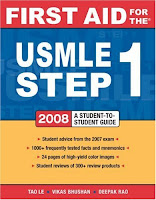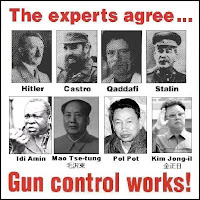Sacrifice your life for the grade. Sacrifice your family for the future.
Light. Blinding light. My eyes squint, teary; blurred images -- silhouettes -- shift along a field of white. Months of living below ground in the dark are over, and I poke my head out of the hole. A mole above ground ... for a weekend.In order to practice medicine in the United States you must pass three licensing exams. The first one, dubbed "Step 1," is taken after your first two years of medical school. This is because the first two years are predominantly class-based basic sciences, and the Step 1 tests student aptitude on these core subjects.
Due to quirks in the US system, the Step 1 exam has become the primary arbitrator of what residency you get, which in turn decides what specialty of medicine you practice for your life.
It's pretty important.
At UT-Houston, second-year classes are year-long, in part because studying for finals helps double as studying for the Step 1. This is when the moles dive DEEP.
 My wife and son left for Utah mid-March, and spent a month there with family so I could study unobstructed at home. At the beginning of April I forwent all fun activities. It was total business. From sunup to sundown, studying was the game. My family returned as block exams rolled around, and I took my studying to school. After that came finals. After finals came five weeks of studying strictly for the Step 1.
My wife and son left for Utah mid-March, and spent a month there with family so I could study unobstructed at home. At the beginning of April I forwent all fun activities. It was total business. From sunup to sundown, studying was the game. My family returned as block exams rolled around, and I took my studying to school. After that came finals. After finals came five weeks of studying strictly for the Step 1. Every day I'd wake up about 6am, get ready and hit the books by 7am. A friend, Marie, picked me up at 8am, and we studied at the library until 3pm. I had a review class from 3pm until 7:30pm M-F, and after getting home, ate dinner and studied some more until midnight. On the weekends it was the same, except no class in the evening.
Day after day went by. After reading the article that engendered "Do you read?" I started keeping track of the time I spent with my family. Typically, I warmed a bottle for my son when I got up in the morning, and spent 15 minutes feeding him about 7am. Although I saw my wife when I got home about 8pm, I really didn't spend time talking with her. Any "meaningful" time came about 11pm to 1am. Typically for about 1 hour, before I hit the hay.
That is the high pressure life of a second year medical student. Sacrifice your life for the grade. Sacrifice your family for the future. If you don't get two standard deviations above the mean, you can't choose what you do for the rest of your life. Imagine that...wanting to be an engineer, but someone else telling you that you'll be an electrical engineer versus a chemical engineer. That's the state of medicine today.
But now the exam is over. I have poked my head above ground. My wife and I spent four days in Corpus Christi to recuperate. Too bad on Monday I start working 120 hours a week during my General Surgery rotation. Here we go again...


